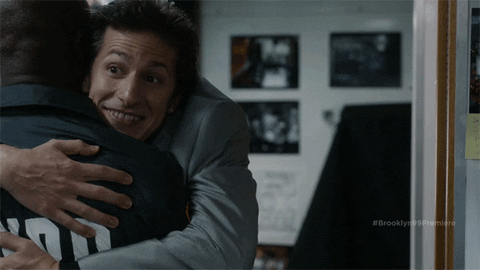The year is 1981, the artist is Shayne Ward, the song is “What About Me” (Look it up, kids!). I actually sing this to my wife all the time as a joke:
The chorus:
“What about me, it isn’t fair
I’ve had enough now I want my share
Can’t you see I wanna live
But you just take more than you give”
What about the employees who have that are staying!?
We all have a lot of employees who are leaving us. I’ve had a couple of really great folks of my own that have left for new positions. I also have the vast majority that have stayed and are also really awesome!
We do this stupid thing in organizations that I hate. It’s been going on forever. We tend to really overvalue new employees and employees who are performing that leave, and we totally discount the folks who stay. Dare I even say, those who are “loyal” and stay. That’s a trigger I know, because honestly, those who left were loyal also, until, well, they left.
I mean, just because someone leaves for an opportunity that feels is right for them and their family doesn’t make someone not loyal. I believe disloyalty is when someone purposely tries to hurt your organization, and as such, is trying to hurt all the employees who actually work there as well. That’s way different!
We have this fixation on trying to “save” an employee who wants to leave. I actually think trying to save good employees is a good investment. The problem is, we also need a “save”/retention strategy for all those employees who are killing it every day and not going anywhere. They need the love as well!
Wait, isn’t that just good old fashion employee engagement or good new fashion employee experience?
Yes.
Yes, and in certain times it’s also more than that. In times of terrific economic advantage to workers, like we are now in, we probably have to do a bunch more. You can show your employees some love, or someone else will!
I had a number of conversations recently with really smart leaders around pay and compensation. In times like we are in right now, compensation market-level data can’t keep up. It never really can, but it usually doesn’t move this fast, so being 3-6 months trailing is okay. Right now, you can not be one month behind. Actually, your recruiters probably have better market data than your compensation team. They are seeing it with accepted and declined offers every day, with pre-screen expectations, with comments they are hearing from hiring managers on offers they are hearing about.
Don’t kid yourself, it’s about pay until it’s not about pay.
We have been sold an old paradigm that we love to believe is true, but it’s only half true. Pay being equal, all the culture and leadership stuff matters. Pay not being equal, no one cares about your stupid skills development program, and Billy the nice boss. First, pay me what I should be getting.
We have a major crisis on our hands right now as organizations. You can only solve so much of this by backfilling talent and turning on your recruiting machine. You first have to turn off the exit pipeline leaving your organization. Settle down the turnover and it will be easier to recruit and build back to where you need to be.
You have a ton of employees who are staying and not resigning. Those folks are now doing more to take up the slack because turnover is so high. As leaders, this is the time you actually make your money. Full court press on making sure your folks are taken care of in the ways that are important to them, that they feel appreciated and seen, that they matter.
It’s not about the folks leaving. It’s about the folks who are staying!




